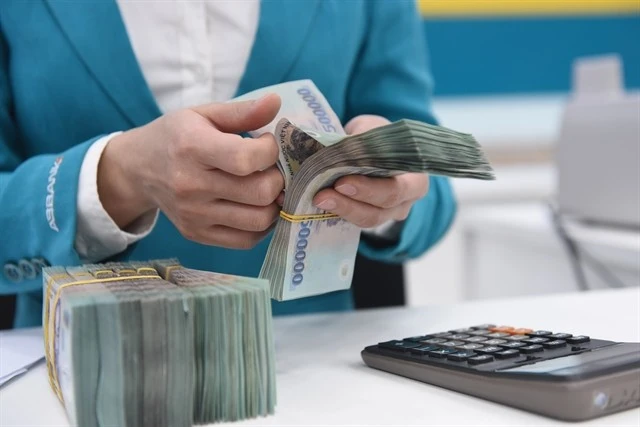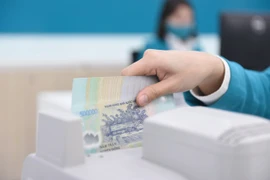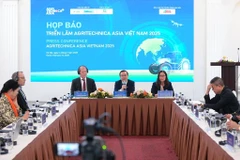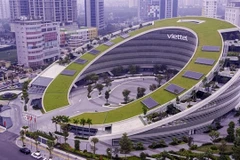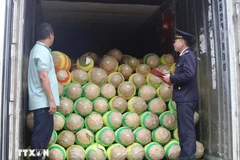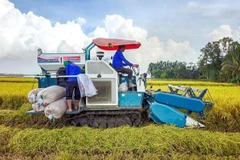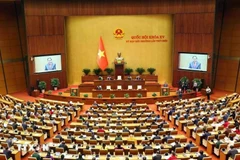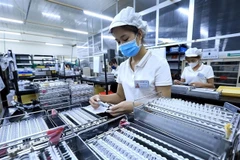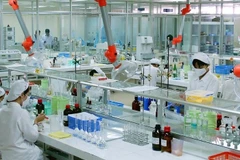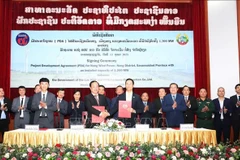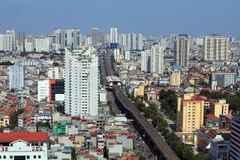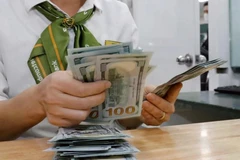Hanoi (VNS/VNA) - The settlement of bad debts must be developed into a draft law and submitted to the National Assembly (NA) in May for consideration and approval, according to a direction from Prime Minister Pham Minh Chinh.
The PM recently assigned Deputy Prime Minister Ho Duc Phoc to directly instruct Governor of the State Bank of Vietnam (SBV) Nguyen Thi Hong to urgently prepare documents to legalise Resolution No 42/2017/QH14 on piloting bad debt settlement of credit institutions and submit it to the NA’s meeting in May 2025.
This resolution, which piloted a programme on handling bad debt of credit institutions, was issued in 2017 and expired at the end of 2024. The Resolution created conditions for credit institutions to effectively manage bad debts, including the collateral assets of real estate projects.
According to Dang Khac Vy, Chairman of Vietnam International Bank (VIB), the bank expects that the legal corridor for handling bad debt will be completed. He explained that currently, the handling of bad debts’ collateral faces difficulties and obstacles as Resolution No 42 has not been legalised, causing great risks for the banking industry.
Vy said that VIB as well as other banks believe that when the legal rights of creditors are guaranteed, the banking industry will increase the ability to have access bank credit of businesses and people.
Credit institutions will lend to individual and corporate customers with more suitable interest rates, which means that the credit costs of borrowers will be reduced and increase the competitiveness of Vietnamese businesses and the economy.
Sharing the same view, Pham Toan Vuong, General Director of Agribank, said the handling of bad debts’ collateral and bad debt recovery of the banking industry, including Agribank, is facing many obstacles as the works have not been fully legalised.
Vuong is concerned because though Agribank has drastically implemented solutions to handle and recover bad debt, bad debt still tends to increase in the context of general difficulties of the whole banking industry, especially due to the impact of Typhoon Yagi. Agribank’s goal of reducing the bad debt ratio to below 3% faces many challenges.
“Agribank expects the Government, the National Assembly and competent authorities to have appropriate legal mechanisms and regulations on handling bad debts and bad debts’ collateral to support credit institutions with a legal basis to thoroughly handle bad debts,” he said.
Deputy Chairman of the Vietnam Banks Association Nguyen Quoc Hung, believes credit institutions are facing potential bad debt risks because Resolution No 42/2017/QH14 has expired. A lack of a completed legal framework related to restructuring credit institutions and handling bad debts will challenge credit institutions in settling bad debts.
The recovery of bad debts will be difficult since many borrowers haven’t cooperated with credit institutions to repay their debts. Some even intentionally did not service their debts, which has affected the process of restructuring and handling bad debts, Hung said.
According to SBV’s data, bad debts of commercial banks as of December 31, 2024 hit more than 733.9 trillion VND, an increase of 3.4% compared to the end of 2023./.
